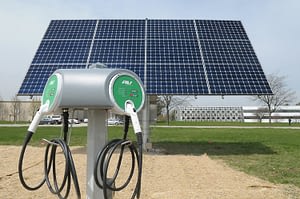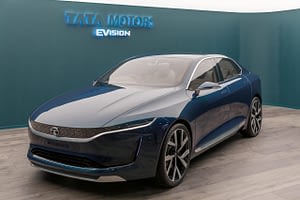Importance of Electric Vehicles in India 2024
Making EV accessible in INDIA
Driving into the Future: The Importance of Electric Vehicles and Successful Implementation Strategies in India
Introduction:
In recent years, the global automotive landscape has witnessed a paradigm shift towards sustainable and eco-friendly transportation solutions. Electric Vehicles (EVs), including electric cars, bikes, and scooters, have emerged as frontrunners in this revolution. In the context of India, a country grappling with pollution, traffic congestion, and energy security concerns, the adoption of EVs holds immense significance. This article explores the importance of electric vehicles and outlines strategies for their successful implementation in India.

The Importance of Electric Vehicles in India:
- Environmental Sustainability: Electric vehicles are heralded as a cleaner and greener alternative to traditional internal combustion engine vehicles. India, with its growing air pollution challenges, can significantly benefit from the reduced emissions and lower carbon footprint associated with EVs.
- Reduced Dependence on Fossil Fuels: India, like many countries, heavily relies on imported fossil fuels for its energy needs. Electric vehicles, powered by electricity, offer a way to diversify the energy mix and reduce dependence on non-renewable resources, contributing to energy security.
- Economic Growth and Job Creation: The EV ecosystem presents opportunities for economic growth and job creation. Manufacturing, research and development, and the establishment of charging infrastructure can stimulate economic activity and generate employment, contributing to India’s vision of becoming a global manufacturing hub.
- Cost Savings and Efficiency: Although the initial cost of EVs may be higher, the operational costs are generally lower than traditional vehicles. With fewer moving parts and reduced reliance on expensive fossil fuels, electric vehicles can offer long-term cost savings to both consumers and businesses.
- Urban Planning and Traffic Management: Electric bikes and scooters, in particular, are well-suited for the congested urban landscape of India. Their smaller size, coupled with zero emissions, can play a pivotal role in easing traffic congestion and improving overall urban air quality.
Successful Implementation Strategies:
- Charging Infrastructure Development: Establishing a robust charging infrastructure is critical for the widespread adoption of EVs. Public and private investments should focus on building a network of charging stations across cities and highways, making it convenient for users to charge their vehicles.
- Government Incentives and Policies: The government plays a pivotal role in incentivizing the adoption of EVs. Policies such as tax breaks, subsidies, and other financial incentives can make electric vehicles more accessible and attractive to consumers.
- Collaboration with Industry Stakeholders: Collaboration between the government, automotive manufacturers, and technology companies is crucial. Joint efforts can lead to innovations, cost reductions, and the development of cutting-edge technologies that will drive the electric vehicle industry forward.
- Awareness Campaigns: Educating the public about the benefits of electric vehicles is essential. Awareness campaigns can dispel myths, address concerns about range anxiety, and promote the positive impact of EV adoption on the environment and economy.
- Research and Development Initiatives: Continued investment in research and development is necessary to enhance battery technology, increase vehicle range, and improve overall performance. This will contribute to overcoming barriers that currently limit the widespread adoption of EVs.

Conclusion:
The transition to electric vehicles in India is not merely a shift in transportation preferences but a leap towards a sustainable and cleaner future. By recognizing the importance of electric cars, bikes, and scooters, and implementing strategic measures, India can position itself as a global leader in the electric vehicle revolution. Through collaborative efforts, innovative policies, and a commitment to sustainable mobility, India can pave the way for a greener and more environmentally conscious automotive landscape.
Read More : KIA Sonet Facelift
Read More : Toyota Fortuner 2024
Read More : Upcoming cars India 2024
Read More : TATA EV






